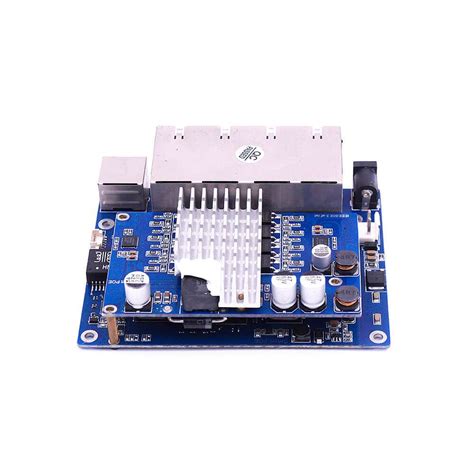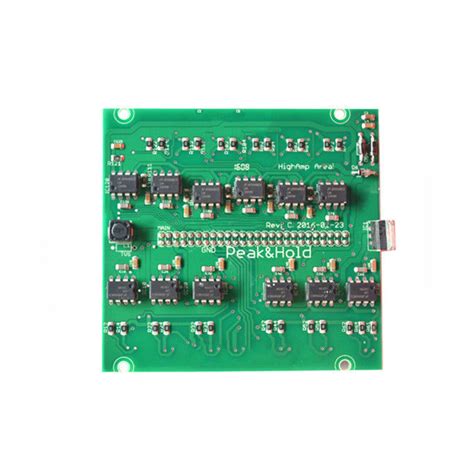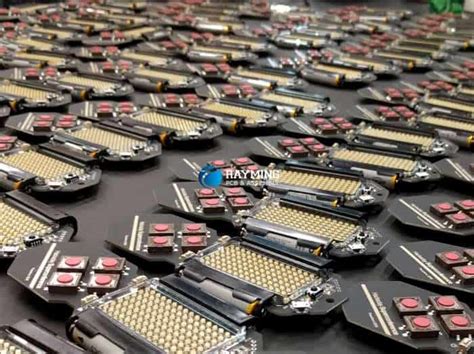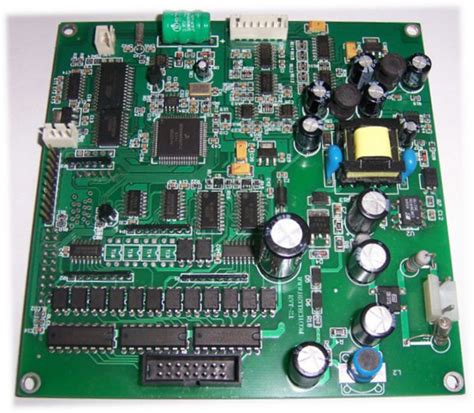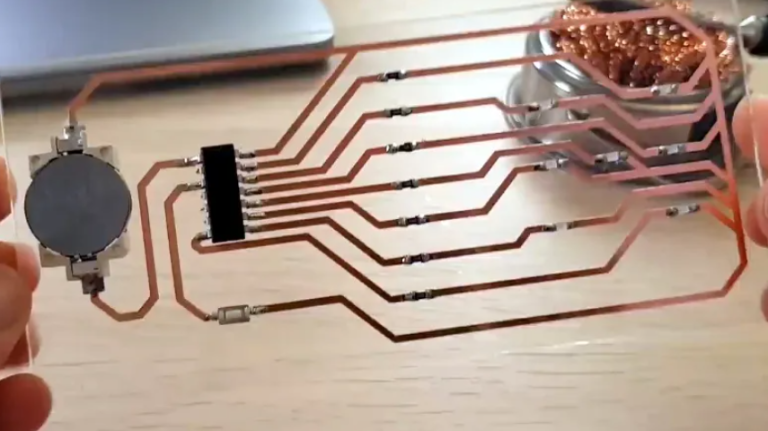Top PCB Assembly Companies You Can Trust for Quality Solutions
Key Takeaways
When it comes to ensuring the success of your electronic projects, selecting the right pcb assembly company is crucial. These firms play a key role in the creation of printed circuit boards, commonly known as PCBs, by providing comprehensive pcba services that include placement, soldering, and testing of components. It’s essential to consider a few critical factors when choosing a partner in this field. Firstly, emphasize the importance of a company’s quality assurance protocols. A reliable pcb assembly provider will demonstrate robust practices that ensure accuracy and minimize defects throughout the manufacturing process. Additionally, their expertise in various industries can indicate the versatility and adaptability necessary for your unique demands. Check for certifications such as ISO to gauge their commitment to excellence.
Another aspect to consider is their investment in innovative technologies. Companies that employ advanced machinery and utilize state-of-the-art software tools can provide superior results faster and with greater precision. This focus on technological advancement not only boosts efficiency but also reduces potential errors during production runs.
Leveraging industry connections can also lead to successful collaborations with top-tier providers. Engaging in case studies or exploring testimonials from past clients gives you valuable insights into a company’s reliability and effectiveness. Ultimately, as you weigh your options among the best pcb assembly companies, keep in mind that effective communication, transparency in processes, and alignment with your specific requirements are all key ingredients for establishing a productive partnership well into the future.
Overview of PCB Assembly: Understanding the Importance of Quality
The pcb assembly process is a critical component in electronic manufacturing, as it directly impacts the performance and reliability of electronic devices. Ensuring high-quality pcba services is vital not only for functionality but also for longevity in the products that utilize these assemblies. Poor pcb assembly quality can lead to failures, which may result in costly repairs or recalls, ultimately tarnishing a company’s reputation.
The importance of quality in pcb assembly cannot be understated. It is essential to work with companies that adhere to strict quality control measures and industry standards. Such companies utilize advanced technologies and skilled personnel to guarantee precision and effectiveness throughout the assembly process. When selecting a manufacturing partner, it is crucial to evaluate their commitment to quality assurance practices and their ability to deliver on specifications consistently.
“Quality should never be an accident; it is always the result of intelligent effort.” This adage reflects the emphasis that should be placed on meticulous attention during pcba processes, ensuring that every component is placed correctly and functions optimally.
Ultimately, engaging with a reliable PCB assembly provider who prioritizes quality can result in enhanced product performance, customer satisfaction, and reduced operational risks. Trusting your pcb assembly needs to a dedicated professional firm can pave the way for innovative solutions tailored specifically to your electronic manufacturing requirements.
Criteria for Selecting the Best PCB Assembly Companies
Choosing the right pcb assembly company is vital for ensuring the success and reliability of your electronic projects. A multitude of factors should be taken into consideration during this selection process. First and foremost, quality control measures are paramount; reputable companies implement stringent testing procedures to confirm that their products meet industry standards and client specifications. Additionally, having a skilled workforce proficient in pcba technologies and processes is essential, as it directly impacts the overall output quality.
Evaluating a provider’s capabilities in terms of technology and equipment is another crucial factor. Companies that invest in advanced machinery and innovative practices tend to deliver superior pcb assembly services, which can significantly enhance efficiency and reduce errors during production. Furthermore, consider the company’s experience, particularly in your specific industry sector; those with a proven track record are often better equipped to address unique challenges effectively.
Another important criterion is the company’s ability to meet deadlines consistently. Timely delivery can have a significant impact on your project timelines, making it essential to partner with firms known for their reliability in adhering to schedules. Customer service also plays a critical role; clear communication channels ensure that any issues can be swiftly addressed throughout the manufacturing process.
Lastly, assessing customer testimonials and case studies can provide meaningful insights into a company’s performance and client satisfaction levels. By thoroughly evaluating these aspects, you can confidently select a pcb assembly partner that aligns with your needs and expectations for high-quality electronic manufacturing solutions.
Top PCB Assembly Companies Renowned for Excellence
When it comes to pcb assembly, choosing a company that embodies excellence is crucial for the success of any electronic project. Various PCB assembly firms have garnered recognition for their unwavering commitment to quality and reliability. These companies employ advanced technologies and sophisticated quality control measures to ensure that every printed circuit board assembly meets high industry standards. Among the best in the field, they not only provide standard pcba services but also offer customized solutions tailored to specific client needs, which is essential in today’s fast-paced electronic market. It is through these trusted providers that businesses can source their components and assembly services with confidence, knowing they are collaborating with firms known for their expertise and innovation. Consequently, this partnership often leads to more efficient manufacturing processes and superior product outcomes, positioning these companies as leaders in the pcb assembly industry.
Innovative Technologies in PCB Assembly Services
The landscape of PCB assembly is continually evolving, driven by advancements in technology that enhance efficiency and precision. Modern PCBA processes now incorporate automated assembly techniques, such as surface mount technology (SMT) and pick-and-place machinery, which drastically reduce assembly time while improving accuracy. Additionally, the integration of computer vision systems ensures that components are placed correctly, minimizing defects and optimizing quality.
Furthermore, the rise of Industry 4.0 practices is transforming how PCB assembly firms operate. Smart factories utilize IoT (Internet of Things) devices to monitor production lines in real-time, allowing for immediate adjustments based on data analytics. This capability not only boosts productivity but also enhances the overall reliability of the PCB assembly process.
Here is a comparison table highlighting some innovative technologies used in PCB assembly:
| Technology | Description | Benefits |
|---|---|---|
| Surface Mount Technology (SMT) | A method where components are mounted directly onto the surface of a printed circuit board. | Increases circuit density and reduces size. |
| Pick-and-Place Machines | Automated machines that place components on a PCB with high speed and accuracy. | Reduces assembly time and labor costs. |
| Computer Vision Systems | Technology that inspects components using cameras to ensure proper placement and detect defects. | Enhances quality control by minimizing errors. |
| IoT Integration | Connectivity between devices on the production floor to gather data and analyze performance. | Improves operational efficiency through data-driven decisions. |
In summary, these innovative technologies not only streamline the PCBA process but also contribute significantly to maintaining high standards of quality and reliability in electronic manufacturing. As these advancements continue to progress, they will redefine what is possible within the realm of PCB assembly, making it essential for manufacturers to stay updated with these trends to remain competitive in the industry.
Case Studies: Successful Partnerships with PCB Assembly Firms
In the rapidly evolving world of electronics, establishing a successful partnership with PCB assembly firms can be transformative for businesses aiming to enhance their product quality and efficiency. Various case studies exemplify how companies have benefitted from collaborations with top-rated pcb assembly providers. For instance, a leading technology firm faced challenges in delivering robust products within tight timelines. By engaging a specialized PCBA company known for its reliability, they not only optimized their production processes but also improved product performance significantly. The firm’s decision to partner with this seasoned provider resulted in reduced lead times and unmatched quality assurance protocols. Another notable case involved a startup that needed to scale its operations quickly while ensuring adherence to rigorous industry standards. Through its partnership with an established PCB assembly service, the startup successfully integrated innovative features into its designs, while also enhancing the durability of its products. These examples highlight that choosing the right pcba company can lead to substantial improvements in overall production efficiency, paving the way for successful market entries and sustained growth in competitive environments.
The Future of PCB Assembly: Trends and Predictions
The landscape of PCB assembly is undergoing significant transformation, driven by the relentless pace of technological advancements and evolving market demands. One of the most notable trends is the adoption of automation in pcba processes, which enhances efficiency and reduces lead times. Companies are increasingly investing in advanced machinery that leverages robotics and AI to streamline assembly operations, thereby minimizing human error while maximizing output quality. Additionally, there is a growing emphasis on sustainability within the pcb assembly industry; manufacturers are focusing on environmentally friendly practices, such as reducing waste and utilizing recyclable materials in their production processes. This shift not only meets regulatory pressures but also resonates with eco-conscious consumers. Furthermore, we are witnessing a surge in demand for smaller, more complex electronic devices which require sophisticated pcba solutions. As such, the integration of multilayer boards and fine-pitch components is becoming more commonplace. This complexity necessitates collaboration between top PCB assembly companies and their clients to ensure that products meet specific performance standards while maintaining reliability. Predictive analytics is also making waves in this sector, enabling companies to anticipate possible failures or defects before they occur; thus providing greater assurance of the durability of their electronic assemblies. Ultimately, as these trends evolve, they will shape the future viability and competitiveness of enterprises within the pcb assembly market.
How to Ensure Reliability in Your PCB Manufacturing Process
Ensuring reliability in the PCB assembly process is crucial for the success of your electronic products. One of the primary steps to achieve this is by selecting top PCB assembly companies that employ rigorous quality control measures. Extensive testing protocols such as Automated Optical Inspection (AOI), X-ray inspection, and in-circuit testing help identify defects early in the manufacturing process, thus minimizing the risk of failures. Additionally, it is essential for these companies to utilize high-grade materials and components to ensure that the PCBA can withstand various operational stresses. Collaboration with suppliers who maintain stringent quality standards can further enhance reliability. Lastly, implementing a robust supply chain management system can address potential disruptions, ensuring that your PCB assembly stays on schedule and meets performance expectations. By prioritizing these aspects, you can secure a dependable PCB assembly process that translates into a high-quality final product.
Conclusion
In today’s fast-paced electronics market, selecting a reliable pcb assembly partner is crucial for any business aiming to maintain a competitive edge. The landscape of pcba services is rich with options, but not all companies provide the same level of quality and reliability. The best pcb assembly companies are distinguished by their commitment to exceptional craftsmanship and state-of-the-art technologies. They utilize innovative processes that not only enhance production efficiency but also ensure the durability and performance of the final product. As we’ve explored throughout this article, knowing the criteria for selecting a trustworthy vendor is fundamental in making an informed decision. Companies that showcase proven success stories through robust case studies embody the ideal choices for collaboration. Investing in quality pcb assembly solutions today paves the way for a robust electronic manufacturing future, allowing businesses to thrive while delivering high-quality products to their customers efficiently. Understanding these fundamentals will undoubtedly empower you to make the best choices when it comes to sourcing pcba services, ultimately positioning your organization for long-term success in this ever-evolving industry.
FAQs
What is pcb assembly?
PCB assembly refers to the process of connecting electronic components to a printed circuit board (PCB) to create a functional electronic device. It involves several steps, including soldering components, testing, and ensuring that the final product meets quality standards.
How do I choose the best pcb assembly company?
When selecting the best pcb assembly company, consider factors such as their experience, quality certifications, customer reviews, and the technology they use. It’s essential to partner with a provider that demonstrates a commitment to delivering high-quality pcba services.
What technologies are used in pcb assembly?
Modern pcb assembly utilizes advanced technologies such as surface mount technology (SMT), through-hole technology, and automated soldering processes. These innovations ensure precision and efficiency in assembling electronic components on PCBs.
How long does the pcb assembly process take?
The duration of the pcb assembly process can vary based on several factors, including the complexity of the design, the number of components, and the production volume. Typical turnaround times can range from a few days for simple projects to several weeks for more complex assemblies.
Can I get a prototype from a pcb assembly company?
Yes, most reputable pcb assembly companies offer prototyping services. This allows you to test your design before committing to larger production runs, ensuring that any issues are addressed early in the manufacturing process.

